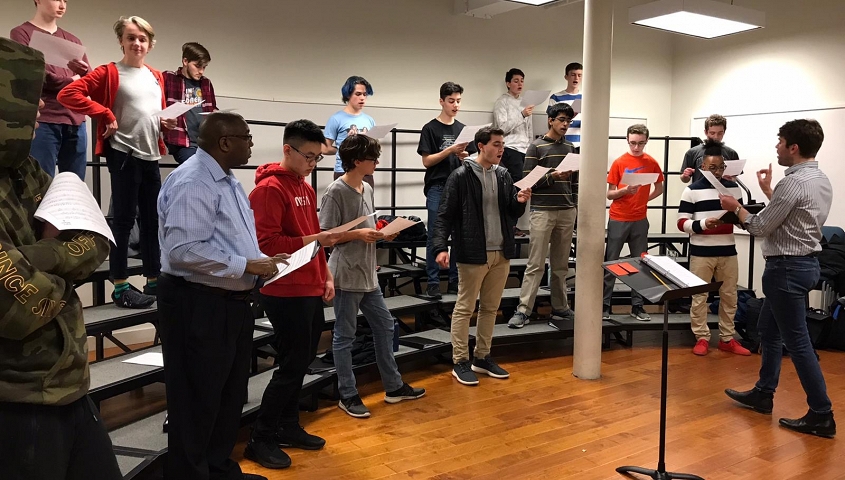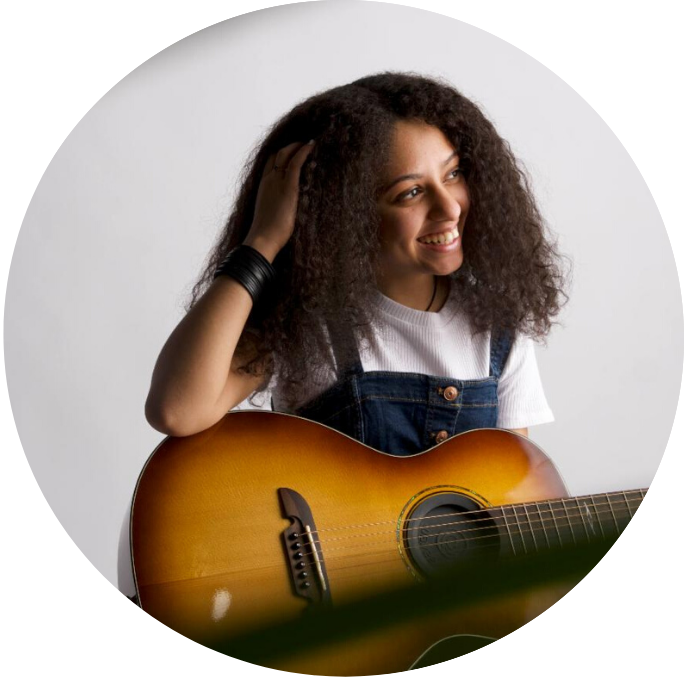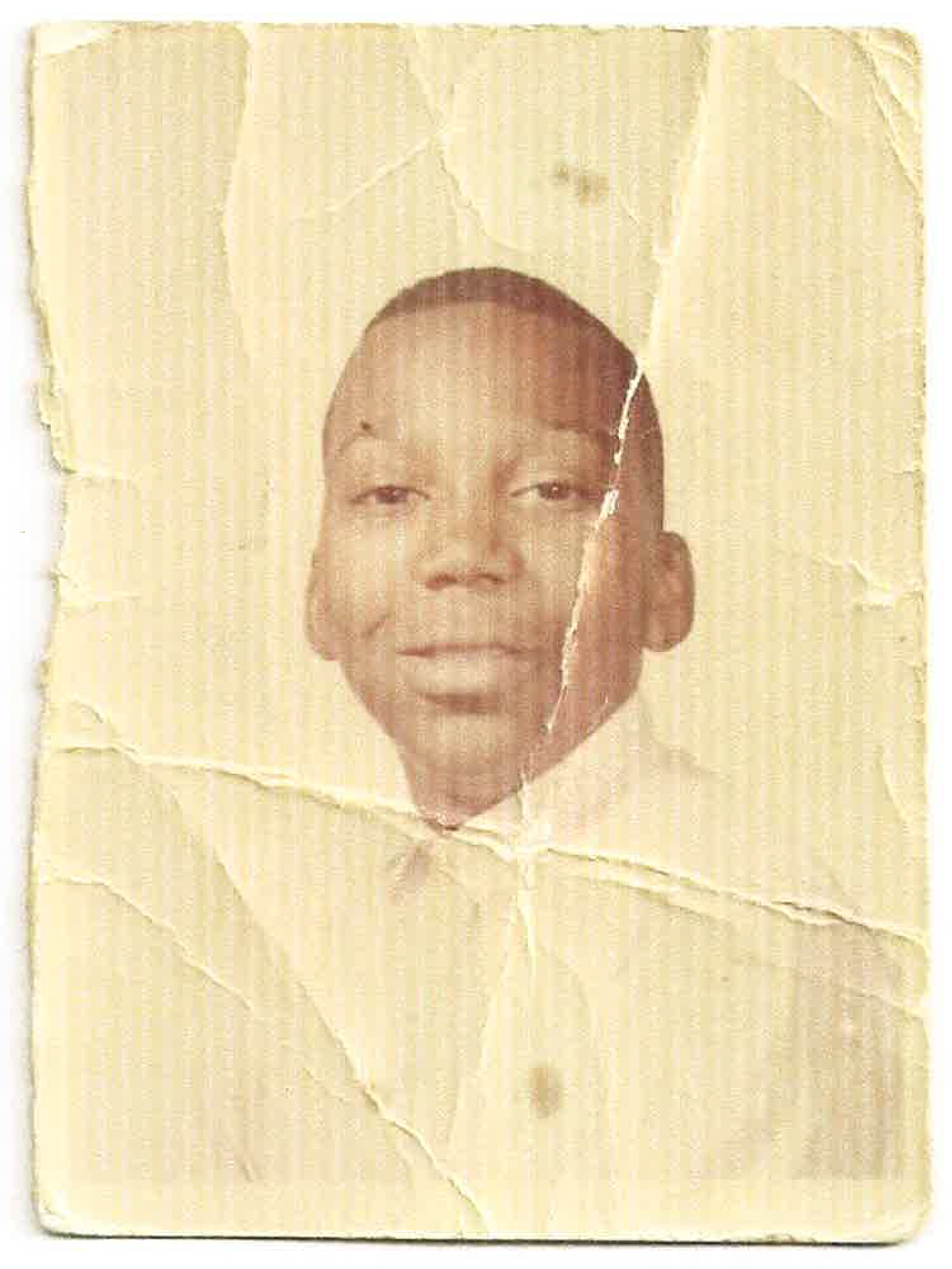
BCC congratulates the 2020 winner of the 9th Annual Herbert Randolph Kiser Memorial Scholarship, Shantel Teixeira!
The Herbert Randolph Kiser Memorial Scholarship was established to help young people realize their full potential. Herbert Randolph "Randy" Kiser was born in Waltham, Massachusetts in 1956. Randy received the majority of his formal education in the Boston Public Schools and last attended Boston English. In May 1974, Randy was returning home from work when he was approached by two young men on Gallivan Boulevard near Neponset Circle in Dorchester. Randy’s life was taken as a result of a racially motivated attack.
The scholarship was established for the singular purpose of helping a young person realize their full potential since Randy is unable to realize his. Recipient(s) are graduating Boston Children's Chorus seniors who are bound for college, who are civically engaged, and who have demonstrated a commitment to diversity and the well-being of humanity.
This year, one Herbert Randolph Kiser Memorial Scholarship was given, however, every singer who submitted an essay submission will receive a $1,000 award.

Shantel Teixeira
Congratulations to Shantel, the 2020 Kiser Scholarship winner! Shantel will be attending Berklee College of Music in the fall, studying Music Business/Management.
She shares in her winning essay "Bo Storia": "Too often, we allow our fears and uninformed judgments to dictate our actions, preventing us from finding the true potential that the unknown can possess. BCC has continually taught me to seek every and any opportunity both to share my story and to listen to those of others, finding ways to bridge the gaps that may lie between them...Through my commitment to sharing the unheard story of a collection of the ten small, yet beautiful islands of Cape Verde, I also hope to encourage the communities around me, from BCC and beyond, to advocate for their own stories as well."
Read the full essay below!
Bo Storia by Shantel Teixeira
Prompt: At BCC, how do you engage in meaningful dialogue and discussion with people that hold different views than you do? How will you contribute to inclusion and a respect for diversity of thought in community settings post-BCC?
Gripping the neck of my guitar, I can taste the salt from the beads of sweat rushing down my cheeks as the crowd’s eager ears wait to hear me play. I open my mouth to release my story, and as my worries begin to fade, the Cape Verdean Creole rolls off my tongue with ease. Closing my eyes, I envision the clear salt waters of Cape Verde rushing up against the rocks as I inhale the festival’s aroma of katxupa, our sacred traditional food. As I scan the beautiful crowd bursting with Cape Verdean pride, a stunning realization hits me –not a single face looks the same. For Norwich, Connecticut’s first-ever Cape Verdean festival, there are more people outside of our culture joining me in appreciating my heritage! Watching them attempt to sing along with me in a foreign language and move their hips to an unfamiliar rhythm, I can’t control the smile stretching across my exuberant face; this is the sense of belonging that music fosters, the sense of belonging that has the power to diminish the contrast between all our differences and use them, rather, to build communities.
After my exhilarating performance, I received a private message from a non-Cape Verdean audience member, thanking me for my artistic contributions to the festival. In fact, she told me that my singing was the first time she had ever heard the Cape Verdean language; because she had worked with many Cape Verdeans in her field prior, she came to the festival to experience the culture herself. As she posed question after question, I told her all about the nuances of Cape Verdean music including the various genres and dances. In order to immerse her fully in the musical aspect of our culture, I even shared my extensive playlist full of all types of traditional, Cape Verdean musical styles–I had never seen someone so foreign to Cape Verdean culture be so eager to learn about a people that was so unfamiliar to her. And I immediately thought to myself, “what if everyone possessed and applied this same enthusiasm to the concept of the unknown?”
Too often, we allow our fears and uninformed judgments to dictate our actions, preventing us from finding the true potential that the unknown can possess. BCC has continually taught me to seek every and any opportunity both to share my story and to listen to those of others, finding ways to bridge the gaps that may lie between them. Apart from the conversations we have with one another, even the music we bring off the page and into the world around us often revolves around hidden or forgotten stories of people throughout history. Last year, during our preparation for the annual Martin Luther King Jr. performance, I recall a discussion with my peers sparked by the piece “How Can I Cry” by Moira Smiley, which pays homage to the many voices belonging to numerous cultures who have been silenced for looking oppression straight in the eye in the name of protest and freedom. Inspired by our conductor’s vivid descriptions of the generations of African-American struggle and the stakes under which they fought, we shared our stories of hardship and moments when we were looked down upon for challenging the status quo. Rather than allowing our differences to set us apart, BCC takes pride in its diversity and inclusion of all kinds of experiences, backgrounds, beliefs, and stories. Without having been exposed to the organization’s unique method of encouraging diversity of thought, I would not have been able to understand the multifaceted power of music and its ability to fight discrimination and build bridges.
With the foundation that BCC has provided, my social and cultural exposure to music along with my Cape Verdean-American identity has inspired me to share my knowledge of and bring awareness to Cape Verdean culture. I believe ensuring that every conversation about aspects of our society’s culture–from politics to religion to entertainment and more–includes the very identities that make up our communities is crucial to our understanding of society and of each other. Massachusetts alone is home to the largest diaspora of Cape Verdeans encompassing 65,000 Cape Verdeans who have crossed thousands of miles in search of opportunity and have become an integral part of the identity of various communities, including our Boston home. Through my commitment to sharing the unheard story of a collection of the ten small, yet beautiful islands of Cape Verde, I also hope to encourage the communities around me, from BCC and beyond, to advocate for their own stories as well. My debut single entitled “Bo Storia” or “Your Story”, an original song entirely in Cape Verdean Creole, is representative of my mission in that the piece speaks on my desire to become part of my country’s narrative; however, the music video also tells the story of how I came to understand my own complex identity–a process that many people can relate to, allowing my story to become anyone’s story and vice versa.
I aspire to make sure that my story is heard, that the story of Cape Verde and all of its individuality is brought to the forefront. As written in my first single, “Nkre leba mundo intero a conxebo; nkre faze parte di bo storia bonito– I want to bring the entire world to meet you; I want to be a part of your beautiful story.”
Prior Scholarship Recipients
- Jillian Baker
- Allyssa Almeida
- Sabrina Marzouki
- Kevin Chan
- Nafisa Wara
- Jessie Rubin
- Ana Mejia
- Emmaline Dillon
- David Blitzman
- Leo Kotomori
- Alex Lee-Papstavros
- Carrie Shao
- Austin Moore
- Sophia Bereaud
- Hal Cox
- Matthew Auguste
- Elizabeth Rozmanith
About Herbert Randolph Kiser

Herbert Randolph Kiser was born in Waltham, Massachusetts in 1956. Herbert, affectionately called Randy by his family and friends, received the majority of his formal education in the Boston Public Schools and last attended Boston English.
On May 15, 1974, Randy was returning home from work when a car occupied by two young men approached him on Gallivan Boulevard in Dorchester. One of the young men exited the vehicle and a brief altercation ensued.
Most, unfortunately, Randy’s life was then taken.
The young man shared that it was solely out of racial hatred that he ended Randy's life. Randy was 18 years old at the time.
The Herbert Randolph Kiser Memorial Scholarship was established for the singular purpose of helping a young person to realize their full potential since Randy was unable to realize his.
The annual scholarship was founded in 2006.
Randy was raised in a family that believes fervently in the value of all people. Believing deeply in the mission of the BCC organization, the scholarship chose BCC as its home in 2012.
Since then, 17 graduating seniors have received scholarships, totaling more than $30,000.
Past Scholarship recipients have attended or are currently attending such colleges and universities as The University of Southern California, Norte Dame, Ithaca College, Elon, Clark, UMASS, Harvard, and Boston University.
Randy's family is committed to social justice, fairness, inclusion, diversity in all of its forms, and supporting all efforts in support of peace and reconciliation in society.

